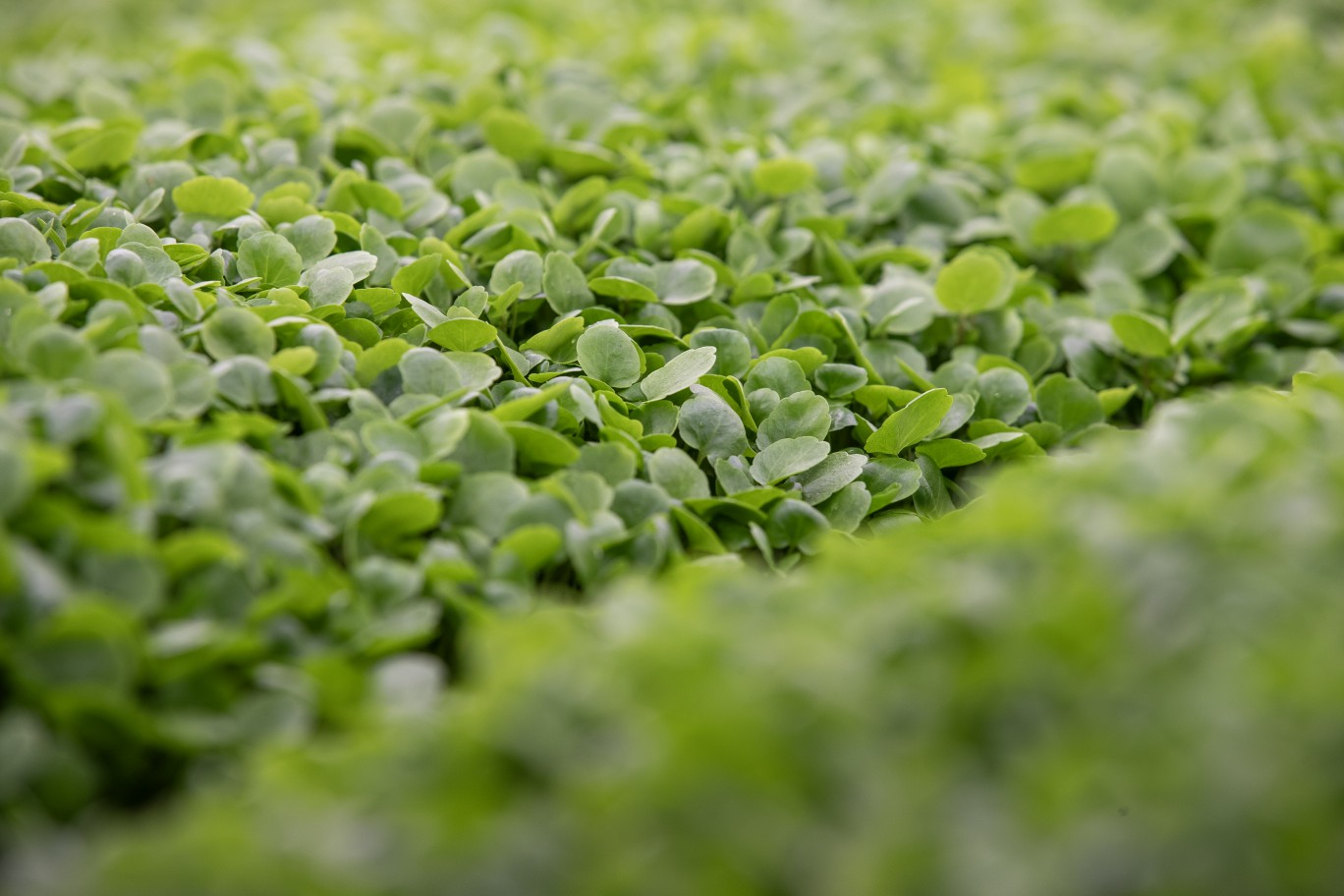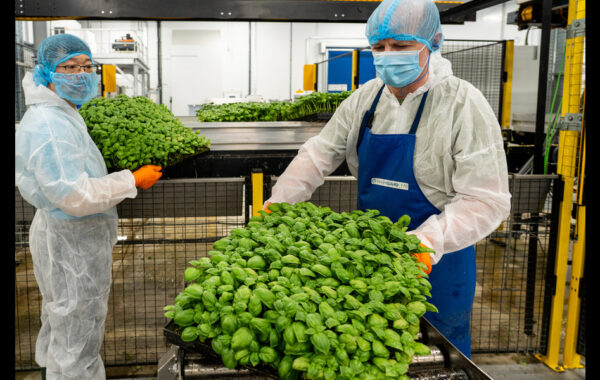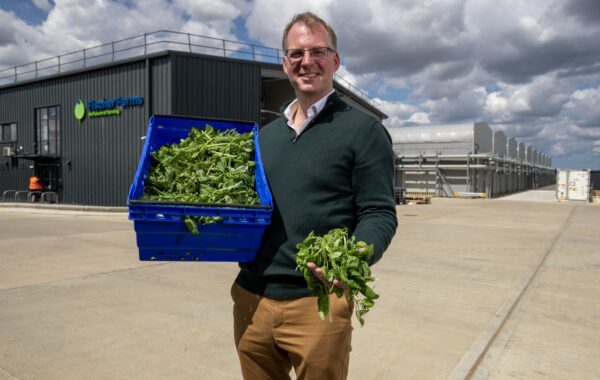
‘Did you know’…if you love organic, you’ll love vertically farmed produce too?
Vertical vs. organic farming is the topic of much industry debate, but this ‘Organic September’, Alfie Jackson, Lead Agronomist at Fischer Farms, explains why vertical farming and certified organic have plenty in common.
Ever since the vertical farming boom began, securing organic classification has been a hot topic. Over the pond in the US and Canada, vertically farmed produce is now recognised by organic industry bodies, thanks to its shared qualities with organic food. But in the UK, we are a little behind the curve.
Currently, the four organic control bodies in England do not recognise vertical farming. So, what exactly makes organic produce ‘organic’ and how can its synergies with vertical farming bolster the fresh produce industry to give consumers a greater choice of high quality, sustainably sourced foods?
According to The Soil Association, ‘organic is a system of farming and food production that aims to produce high-quality food, using methods that benefit our whole food system’.
Organic farmers work to a strict set of standards, which are built on the International Federation of Organic Agriculture Movements’ key principles:
Health – Organic agriculture should sustain and enhance the health of the planet.
Fairness – Organic agriculture should build on relationships that ensure fairness with regard to the common environment and life opportunities.
Ecology – Organic agriculture should be based on living ecological systems and cycles, work with them, emulate them and help sustain them.
Care – Organic agriculture should be managed in a precautionary and responsible manner to protect the health and well-being of current and future generations and the environment.
Put simply, organic produce has been grown in a way that minimises the impact on the surrounding environment, without the use of synthetic chemicals. When you look at the practice of vertical farming, we share some real synergies with our organic peers.
Minimising the impact on nature
One of the defining qualities of organic produce is that is has been grown in harmony with nature. The cultivation process is designed to minimise the impact on the surrounding environment and involves techniques that achieve good crop yields, without harming nearby biodiversity and ecology.
From sustainable land management to preserving soil health, organic farmers are seen as custodians of biodiversity at all levels.
By its very nature, vertical farming is extremely kind to the surrounding environment and can be established on any type of land, from an industrial estate to brownfield sites. This frees up prime agriculture land for foods that cannot be vertically grown.
Chemical free
One the most recognised – and loved – qualities of organic farming is that it uses virtually zero pesticides.
Organic farmers are permitted to use just 20 pesticides (derived from natural ingredients), compared to around 400 in non-organic farming. They also manage pests using natural methods like crop rotation.
Thanks to the bio-secure, climate controlled growing environment, vertically farmed foods are 100% chemical free. The absence of soil completely eliminates the need for pesticides, herbicides and insecticides.
Sustainable
Organic farming is said to create less soil and water pollution, and lower greenhouse gas emissions than conventional methods, making it a sustainable alternative to traditional farming.
Vertical farming mirrors these claims, using less land, employing innovative crop production techniques, and slashing food miles.
Vertical farming enables us to be much more productive using less space. For example, at Fischer Farms, we can grow the same amount of food in our 4-acre building as 1,000 acres of traditional British farmland, resulting in yields 250 times greater than conventional farming.
Our processes require significantly less water (around 95% less) than industrial farming and remove the issues typically associated with traditional methods, such as topsoil erosion or chemical run-off.
We operate all year round, entirely independent of volatile weather conditions, providing retailers and packers with a stable supply of produce, eliminating the need to import goods from overseas decreasing transport miles and costs. In fact, our infrastructure can be established in almost any country in the world, regardless of climate and soil quality, which means net importers can become self-sufficient and significantly reduce the carbon emissions associated with food miles.
High quality produce
Organic food has earned itself a premium title, due to the positive qualities mentioned above. Consumers know that it has been produced in way that is kind to the planet, and know they are getting a quality, natural product.
The same goes for vertically farmed goods too. As our production process is strictly controlled, we can guarantee a consistently higher quality, fresher tasting product. Grown in a bio-secure facility, our crops do not need to go through a decontamination process, which retains nutrients and delivers a more positive increase in shelf life than standard field grown crops.
Organic certification
Current legislation states that, due to the absence of soil, vertical farming cannot be classified as ‘organic’. However, there is clearly a real synergy with the qualities that secure organic foods with this label.
At Fischer Farms, we are keen to work with the UK organic bodies and the wider vertical farming industry to understand organic legislation and champion a policy change to secure accreditation.
By securing organic classification for vertically farmed produce, consumers, retailers and suppliers alike can be confident that their fresh produce has been grown in the most sustainable, environmentally friendly way.





